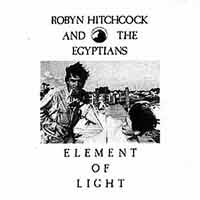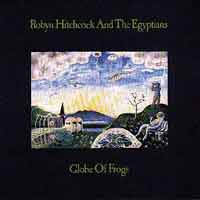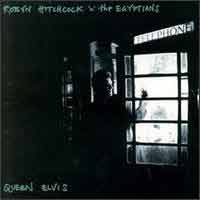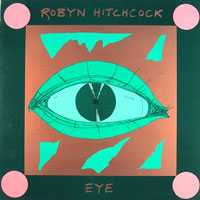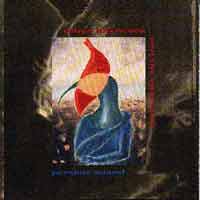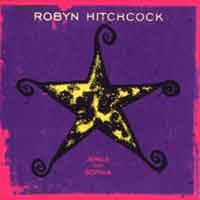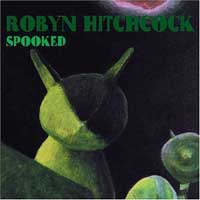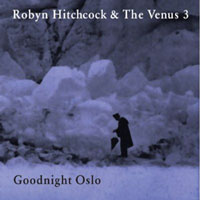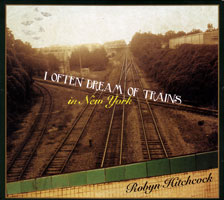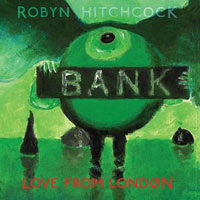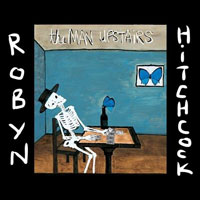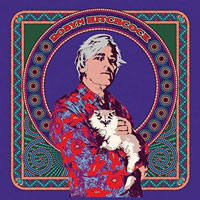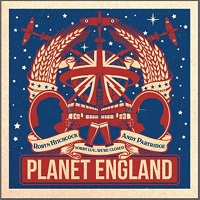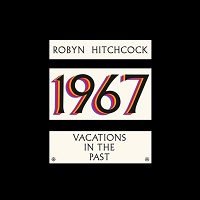Hitchcock was so shaken by the entire Groovy Decay disaster that he retired from recording for two years. When he returned in 1984 with I Often Dream of Trains, it was clear that the time off had affected his music. A collection of spare, acoustic-based pop-folk songs, I Often Dream of Trains is one of Hitchcock's most introspective and charming records. Instead of creating an impenetrably personal album, the stripped-down instrumentation actually opens up the songwriter's world, allowing the ballads ("Trams of Old London," "Cathedral," "Flavour of Night") to sit comfortably next to the jokes ("Uncorrected Personality Traits"). Alternating between acoustic guitars and solo piano, the music is never fragile, adding a strong support to Hitchcock's eccentric lyrics.
(by Stephen Thomas Erlewine, All Music Guide)
After the debacle that was the making of 1982's Groovy Decay, Robyn Hitchcock briefly retired from music, and when he returned it was with an album that offered a thoroughly uncompromised vision of Hitchcock's imagination. Released in 1984, I Often Dream of Trains was a primarily acoustic set with Hitchcock handling nearly all the instruments and vocals by himself; the tone is spare compared to the full-on rock & roll of his recordings with the Soft Boys or his solo debut, Black Snake Diamond Role, but the curious beauty of Hitchcock's melodies is every bit as striking in these stripped-down sessions, and the surreal imagery of "Flavour of Night," "Trams of Old London," and the title song comes to vivid and enchanting life. Hitchcock's off-kilter wit has rarely been as effective as it is on this album; the jaunty harmonies of "Uncorrected Personality Traits" are the ideal complement for the song's psychobabble, "Sounds Great When You're Dead" manages to be funny and a bit disturbing at once, and the drunken campfire singalong of "Ye Sleeping Knights of Jesus" was joyously sloppy enough to inspire a cover by the Replacements. There's a slightly ramshackle quality to these recordings, but Hitchcock was rarely in more uniformly fine form as a songwriter, and there is a consistency of tone to the disc that makes it all the more effective, drawing listeners into a curious world of its own and allowing them to explore the surroundings and their quiet splendor. And Hitchcock has rarely recorded a song as luminously gorgeous as "Autumn Is Your Last Chance." Hitchcock would pick up his electric guitar and reunite with his band the Egyptians in 1985, releasing two fine albums in one year, but I Often Dream of Trains was a simple and marvelously effective return to action that's all the more winning for its subdued, tentative tone.
(by Mark Deming, All Music Guide)
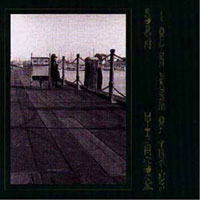
 Plattentipp
Plattentipp 

